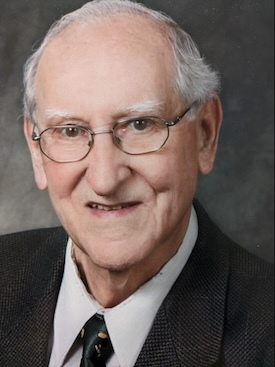Dr. Barry Adams Paediatric Resident Advocacy Education Grant
Established in 2004, the Dr. Barry Adams Paediatric Resident Advocacy Grant supports paediatric residents to develop, plan and implement community-based research or advocacy projects in child and youth health. This grant provides up to 4 awards of $2,500 each in funding.
The grant aims to support community based projects that improve health access, reduce disparities, or enhance the healthcare experience for children and youth, especially those that are underserved.
About Dr. Barry Adams

Dr. Adams was the founding president of the Canadian Paediatric Foundation (now Healthy Generations), a past president of the Canadian Paediatric Society and one of the driving forces behind the building of Ottawa’s children’s hospital, CHEO. He practiced community paediatrics in Ottawa for more than 50 years and is remembered as not only a paediatrician, but a teacher, a mentor, and an advocate.
Eligibility
To be considered for this grant you must:
- be a CPS member,
- be a resident in a Canadian paediatric training program or a medical student in a Canadian university,
- lead the project and be significantly involved in proposal development and project activities.
Project criteria
To be considered, the project must:
- Be completed within one year
- Design a timeline with clear milestones.
- Avoid overly ambitious goals that can’t be realistically completed in 12 months.
- Be community-based and replicable
- Engage directly with the local population.
- Include elements that could be adapted in other communities (e.g., toolkits, training models).
- Be a NEW initiative
- Cannot be an existing program or expansion—must be a fresh concept in that community.
- Demonstrate community collaboration
- Partner with local schools, clinics, community leaders, or other nonprofits.
- Include a sustainability plan
- Detail how the project will continue after the grant ends (e.g., community ownership, future funding sources, integration with existing services).
- Have a realistic evaluation plan
- Include methods for measuring outcomes (e.g., surveys, participation numbers, health indicators).
- Set clear metrics and define how you will collect and analyze data.
- Provide a budget with justification
- Break down expenses by category (e.g., staffing, materials, outreach).
- Include narrative justification explaining how each item supports the project goals.
- Include letters of support
- From a program director or someone in a leadership position who can vouch for the project and your ability to carry it out.
- From any other organization that you will be working with on the project.
Deadline to apply: October 31.
For more details, see the Terms of Reference.
Past Recipients
2022 | Marie Albert |
|---|---|
2021 | Exploring the Challenges Faced by Grandparent Caregivers During the COVID-19 Pandemic Alexis Fong-Leboeuf Youth & Cannabis: An Educational Video Brittany Pennock et al |
2020 | Minding the Gap - Youth Mental Health Empowerment and Education Outreach Rebecca Hay |
2019 | Medical Experiences of Ottawa Region LGBTQ2+ Children & Youth Kyle Canton et al Implementation of a Sensory Toolkit at the Albert Children’s Hospital Emergency Department for Children with Autism Spectrum Ceilidh Kinlin |
2018 | Helmet Use in Under 18s in Magog Claudia Nuncio- Naud, Stephanie Lenet, Sarah Masson Creation and Dissemination of Education Tools on Bronchiolitis and Respiratory Viruses Pierre-Philippe Piché-Renaud |
2017 | The Manitoba Baby Box Initiative: Pilot Project Breagh Kennedy |
2016 | Dr. Alisha Jamal |